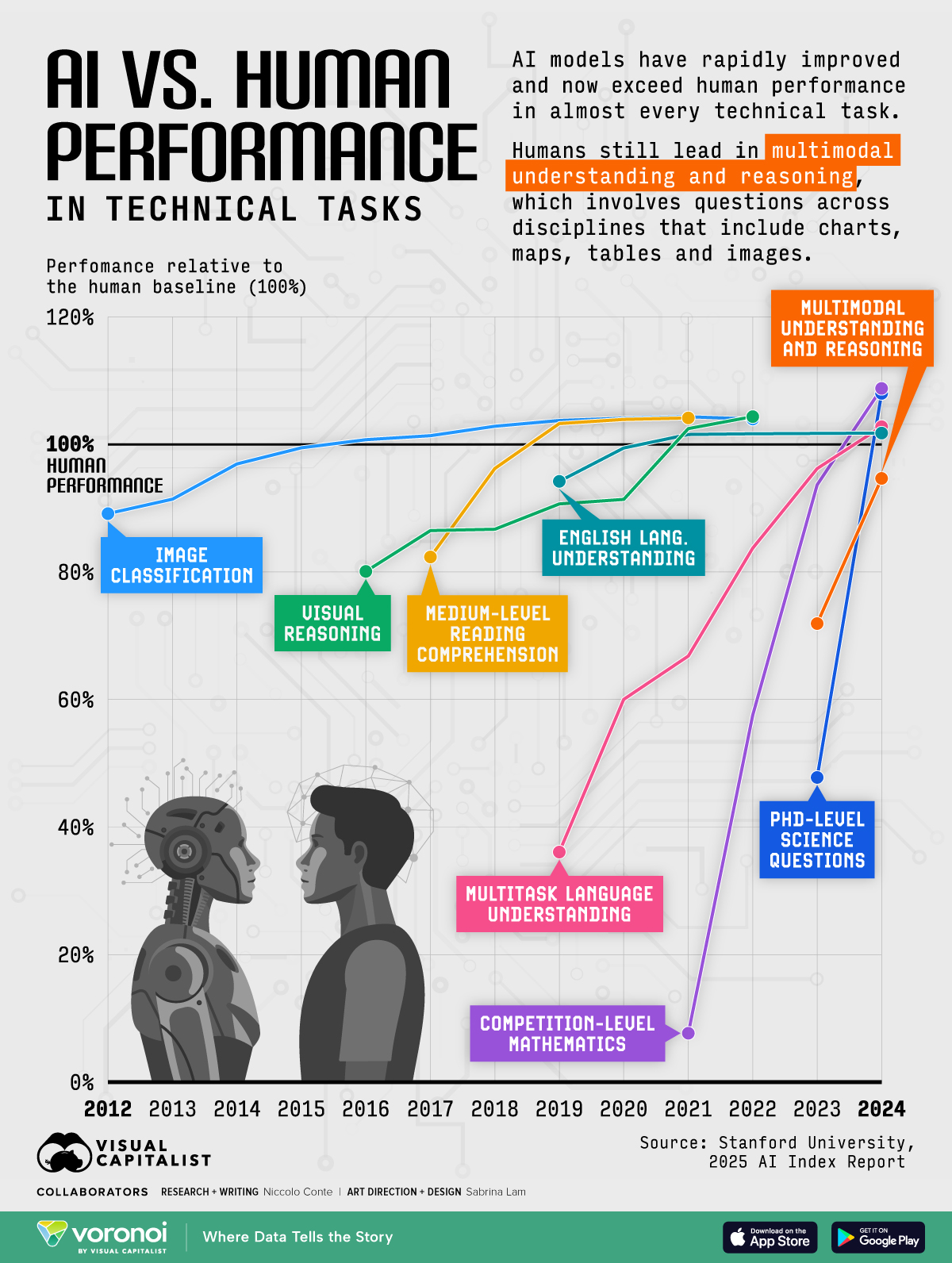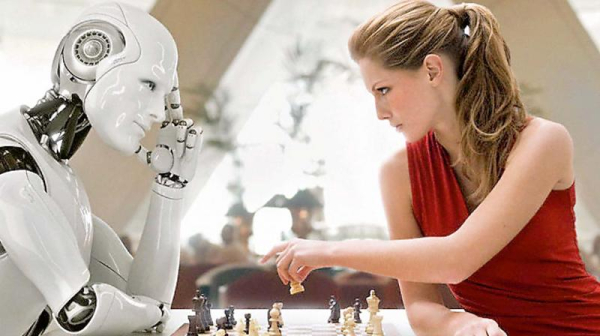When Beethoven was at the peak of his career, several of his contemporaries struggled to deal with the realization that they may never create anything that lived up to his creations. Brahms, for example, refused to make a symphony for 21 years. Schubert is quoted as saying, “Who can ever do anything after Beethoven?”
We’re seeing the same effect as a result of Artificial Intelligence.

via visualcapitalist
The gap between human and machine reasoning is narrowing fast. I remember when AlphaGo, an AI program created by Google’s DeepMind, finally got better than humanity at Go. It was a big deal, and it prompted us to think seriously about competition in a post-AI world. If you can’t be the best, is it still worth competing? To one former Go champion, it wasn’t. He retired after “declaring AI invincible.”
Over the past few years, AI systems have advanced rapidly, surpassing humans in many more tasks. Much like Beethoven, AI is discouraging competition.
Was Lee Sedol, the former Go champ, wrong to quit? It’s hard to say … but as AI gets better at more activities, it’s an issue we’ll encounter more often.
There’s always someone (or something) better. Taking a purely utilitarian approach isn’t always necessary or productive. It often helps to take a longer view of the issue.
Sometimes, it's okay to just do something because you enjoy doing it.
Sometimes you have to “embrace the suck” and be willing to put in the work to learn, grow, and progress.
Sometimes, you need to invest effort in understanding a process better to determine whether others (or automation) are achieving the right results.
The most successful people I know don’t try to avoid things with powerful potential. Instead, they leverage those things to achieve more and become better.
I advocate intelligently adopting AI, in part, because I expect the scale of AI’s “wins” will skyrocket. That means I know AI will soon be better than I am at things I do now.
It doesn’t mean I should give up. It means I have to raise the bar to stay competitive.
I have another belief that helps here. What if you believed, “The game isn’t over until I win …”? With that belief in place, I won’t let a 2nd place ceiling stop me if something gives me energy. AI may change how I play the game … or even what game I choose to play … but I will still choose to play.

What Happens to Human Work When Machines Get Smarter?
AI is changing the playing field at work, too.
As a result, some say that AI-driven job displacement is not a future threat but a present reality.
This past week, several prominent CEOs publicly mandated AI use, marking a shift to “AI-first” work culture, which prioritizes and integrates AI into the core of an organization’s strategy, operations, and overall culture.
Here is what I think (and you've probably heard me say this before):
At this point, AI won't likely replace you … but someone who uses AI better might.
Let’s face it, doing more with less is a core goal and strategy in business.
But that doesn’t mean humans are doomed. There are lots of historical parallels between AI integration and past technological revolutions. If you think about AI as a transformative force, you can hear the echoes of historical shifts that redefined work practices and intellectual labor (like the printing press, the calculator, or the internet).
In the age of AI, success doesn’t come from battling technology — it comes from embracing our uniquely human powers and building systems that let those powers shine.
AI is coming – but it doesn’t have to be joy-sucking. Ideally, it should free you up to do MORE of the things that bring you joy, energy, and satisfaction.
Onwards!

Leave a Reply